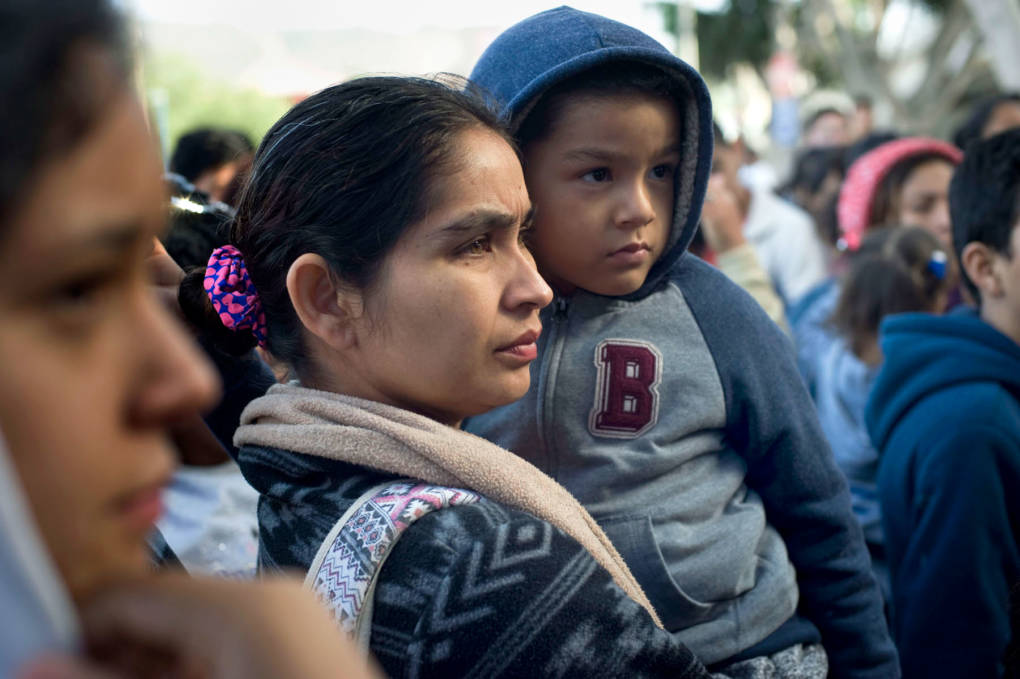The Trump administration on Tuesday quietly launched an effort to make asylum-seekers wait in Mexico while their cases wind through U.S. immigration courts, despite clear reservations and conflicting messages from the Mexican government.
The U.S. returned one asylum-seeker to Mexico — a Honduran man named Carlos Gomez — on the first day of what would be one of the most dramatic changes to the U.S. immigration system of Donald Trump's presidency, if the policy survives an anticipated legal challenge. Gomez, 55, arrived in Tijuana around midday and asked authorities for a ride to a migrant shelter.
Mexican and U.S. authorities are asking San Diego-based nonprofits for help connecting asylum-seekers to legal services after they’re returned to Mexico. But Andrea Guerrero of Alliance San Diego said that's unrealistic, and that migrant advocacy groups don’t have the capacity to deal with this.
“It's unreasonable to expect that they're going to be making international phone calls to access U.S.-based legal service providers who may or may not have the capacity to cross an international border," Guerrero said. She added that the new program "undermines" the due process rights of asylum-seekers.
The only pro bono legal service provider in Tijuana is Al Otro Lado. Nicole Ramos, an attorney with the nonprofit, said it doesn't have the capacity to represent the number of individuals that the U.S. plans to return to Mexico, and that this program "will complicate even the most basic presentation of a case," as well as expose asylum-seekers to historically high levels of violence in Tijuana.
Mexican officials sent mixed signals on the crucial point of whether Mexico would impose limits on accepting families. Tonatiuh Guillen, commissioner of Mexico's National Immigration Institute, said Mexico would accept only people 18 to 60 years old, which rules out families with young children.
But Roberto Velasco, spokesman for Mexico's foreign relations secretary, said Friday that families would be considered case by case. And a Mexican official with direct knowledge of the process said Mexico requested that families be excluded from the policy but that the U.S. declined to make any commitment, conceding only to start with single adults. The official spoke on condition of anonymity because the deliberations were not public.
The launch is limited to San Diego's San Ysidro border crossing, the nation's busiest, though Customs and Border Protection Commissioner Kevin McAleenan wrote in a memo released Tuesday that it is expected to expand to other crossings "in the near future." Adding to a sense of confusion, Guillen said Mexico will allow it only at the one crossing that connects San Diego and Tijuana.
Katie Waldman, a Department of Homeland Security spokeswoman, insisted families will be included. A sharp increase in Central American families seeking asylum in the U.S. led to the Trump administration's dramatic move, and limiting families would diminish the impact.
"It will be expanded across the entire Southwest border, and it will apply to family groups," Waldman said.
